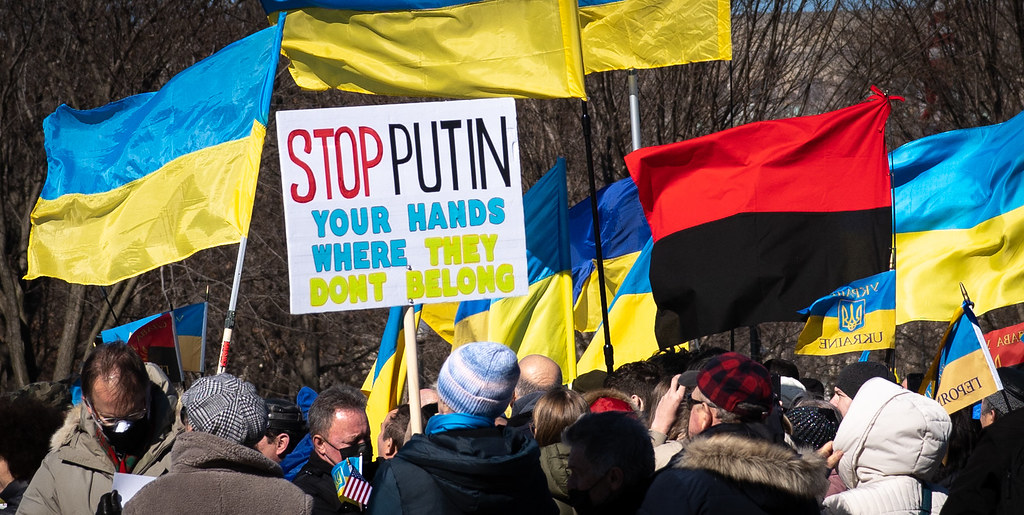OPINION: Political polarization prevents a unified response to Ukraine invasion

A “military operation” conducted by Russia against Ukraine has captivated the world since it began Feb. 24. Undoubtedly an invasion of a sovereign nation, Russia’s actions appear to offer an opportunity for universal condemnation.
Russian and Ukrainian tensions run deep, and so does friction in American politics. Divisions between Democrats and Republicans will continue to taint moments of potential unity.
An unprovoked attack on a sovereign nation demands a response against the aggressor. President Joe Biden has enforced sanctions on Russia to target $80 billion of assets in Russian financial institutions and Russian elites, according to a Feb. 22 White House statement.
Gov. Ron DeSantis wants more. DeSantis discussed the Biden administration’s decision not to sanction Russia’s energy supply and compared U.S.-Ukraine relations during previous administrations.
“When Obama was president, Obama refused to send weapons to Ukraine. When Trump was president, we sent weapons to Ukraine. [Russian President Vladimir] Putin didn’t like that very much,” DeSantis said during a Feb. 28 press conference.
Not only are these comments misleading, but they unnecessarily attempt to divide supporters of the two political parties.
DeSantis doesn’t mention that Trump was impeached for allegedly withholding millions of dollars of aid in an attempt to pressure Ukraine to investigate Biden. This part of Trumpian U.S.-Ukraine relations is notably overlooked.
Trump has also called the invasion “genius” and “wonderful” during an interview on “The Clay Travis and Buck Sexton Show.” These comments have drawn criticism from senators such as Sen. Bernie Sanders, who campaigned for the Democratic nomination to the presidency in 2016 and 2020.
“It should concern us all that Putin is exactly the kind of leader Trump would like to be, and that so few Republicans have the courage to say this out loud,” Sanders said in a Feb. 24 tweet.
Although relevant due to Trump’s influence on current politics, Sanders’ comments further alienate the 74 million Americans that voted for Trump just over a year ago.
In what seems to be a perfect opportunity for American politicians to speak against Putin and Russia without a political agenda, DeSantis and Sanders take an alternative route. Instead, they focus on politics first for the possibility that they may win over more supporters.
The American government is not immune to improvements. Politically charged comments that miss the fundamental issue of a global crisis, however, offer little to the table.








